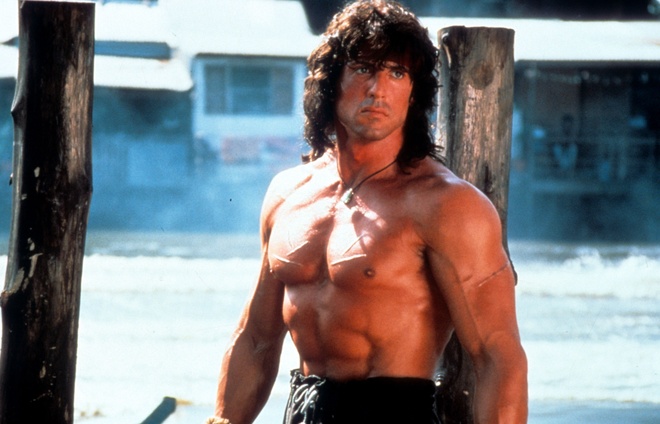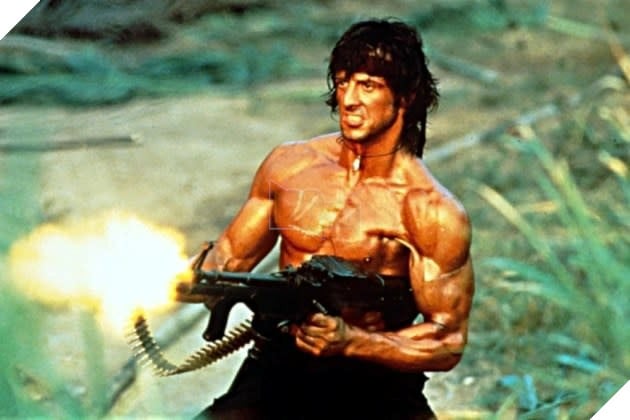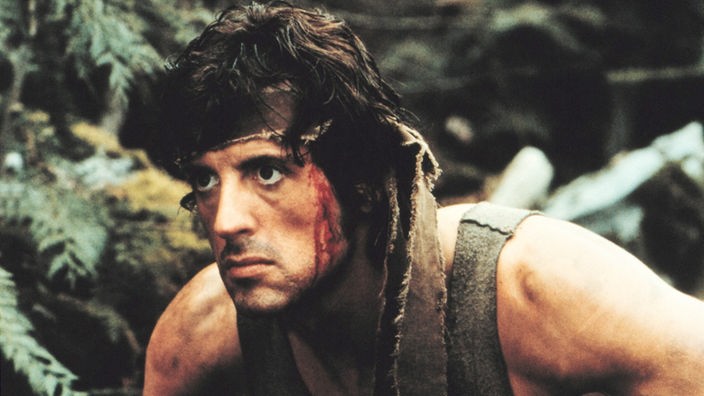RAMBO 6: NEW BLOOD (2025) – THE LEGEND MAY RISE AGAIN
RAMBO 6: NEW BLOOD (2025) – THE LEGEND MAY RISE AGAIN
More than four decades have passed since John Rambo first emerged from the misty backwoods of Hope, Washington, in First Blood (1982), setting in motion a legacy of action, pain, and survival that would ripple across generations. What began as a story about a misunderstood veteran pushed too far has since grown into a global symbol of grit, trauma, and the never-ending war that some men carry within them. Now, in 2025, rumors are swelling louder than ever that Rambo 6: New Blood is on its way—a final chapter, a new beginning, or perhaps both. Though Last Blood (2019) appeared to close the book on Rambo’s blood-soaked saga, the legend may not rest yet. Not with so many questions unanswered, so much rage unspent, and a world still begging for men like Rambo—men who refuse to be broken.
Sylvester Stallone, the soul and sinew behind the character, has always defied endings. From reviving Rocky Balboa after the supposed final bell to assembling the action dream team in The Expendables, Stallone has made a career out of reanimating icons and giving them one last roar. Rambo, perhaps more than any other role he’s embodied, is stitched into his very being. In many ways, Stallone and Rambo are reflections of each other—aging warriors hardened by time, loss, and the relentless passage of history. If New Blood is truly happening, it could be the ultimate fusion of man and myth, a swan song forged not in peace but in purpose.
The core of Rambo 6: New Blood seems rooted in transition. The title alone suggests a shift—perhaps a handoff to a younger generation, or the emergence of a kindred spirit molded by the same furnace of violence and sorrow. In a world far removed from the jungles of Vietnam or the badlands of Mexico, how does a figure like Rambo fit in? The wars may have changed, the enemies may wear new faces, but the emotional terrain remains just as treacherous. Post-traumatic pain, betrayal by institutions, and the sense of being unwanted at home—these are wounds that never fully close. If the film chooses to explore a legacy character, possibly a protégé or even a child, it must grapple with the question: Can the spirit of Rambo exist without the man himself?

There’s something profoundly poetic in imagining an older Rambo retreating further from the world, only to be called back one final time—not out of revenge or duty, but to ensure that someone else doesn’t make the same mistakes he did. The narrative potential of a generational handoff is vast. A younger warrior, perhaps a lost veteran of modern war, or a disillusioned youth caught in the fires of gang violence or corporate militarization, might seek out Rambo—either as a myth to be found or as a mentor to be challenged. What would John Rambo say to someone standing where he once stood, fists clenched, back against the wall, no options left but violence?
The teasers hint at a more grounded and emotional tone, echoing the grittiness of First Blood rather than the full-throttle spectacle of Rambo III or 2008’s Rambo. If that proves true, we may see a film more focused on internal struggle than external explosions—though knowing the franchise, both will likely come in lethal doses. The desert sun of Last Blood may give way to a bleaker, colder landscape, one reflective of Rambo’s emotional state. He’s buried too many friends, lost too many fights, and spent too many nights in silence. There’s no redemption for a man like Rambo—only the hope that the path he walks might one day lead someone else out of the darkness.

Sylvester Stallone has hinted before at ideas of legacy and continuation. In previous interviews, he’s acknowledged the toll these characters take on his body and spirit, but he’s never shied away from giving them the ending they deserve. With Creed, he showed how gracefully a torch can be passed, how one legend’s story can fuel another’s beginning. Could Rambo 6 do the same? Could the film end not with Rambo’s death, but with his spirit living on through a new warrior—one forged in the same fires, but destined to fight a different kind of war?
The politics of a modern Rambo film would be fascinating. The character has always been a barometer for American identity, even if unintentionally. From the disillusionment of First Blood to the Cold War bravado of Rambo III, the franchise has mirrored the evolving psyche of a nation grappling with war and its consequences. In today’s fractured climate—where veterans face alienation, misinformation floods digital landscapes, and violence is often glorified without context—what would Rambo say? Would he be a voice of warning, a relic of wisdom, or simply a silent witness to a world he no longer understands?

It’s possible the film may dive deeper into Rambo’s psyche than ever before. We’ve seen his physical pain, his combat skill, his bursts of uncontrollable fury—but what about his moments of quiet reflection? What haunts him at night? What regrets does he still carry? Has he ever allowed himself forgiveness? A film that juxtaposes explosive action with intimate character study could elevate New Blood into something more than just a sequel—it could be a meditation on war, aging, and the price of survival.
Of course, action remains the beating heart of the Rambo brand. Fans will expect brutal close-quarters combat, tactical ingenuity, and explosive set pieces that push the human body to its breaking point. Whether it’s guerrilla warfare in an urban jungle, a siege on a remote compound, or a climactic last stand in the wilderness, New Blood must deliver on that front. But what will make it endure is what lies beneath the carnage. The quiet moments between battles, the torn photograph in a jacket pocket, the flashbacks that sting sharper than bullets.

Casting will be pivotal. If there’s a new face set to carry the torch, they must embody more than just physical prowess—they must capture the tortured soul, the reluctant rage, the scarred heart of what it means to be Rambo. Perhaps someone like Scott Eastwood, with his lineage and intensity. Or a completely unexpected casting—a woman molded by war, bearing Rambo’s teachings in her veins. The idea of a daughter, biological or symbolic, continuing his fight would redefine the legacy in powerful ways.
Visually, the film could lean into a more stripped-down aesthetic. Gone are the high-tech weapons and jungle explosions; in their place, hand-forged traps, improvised warfare, and brutal realism. The cinematography could be raw, almost documentary-like, immersing viewers in the harsh textures of Rambo’s world—mud, blood, sweat, and silence. The score, perhaps minimalist, could echo with haunting undertones of past themes, reimagined through a modern lens.

If New Blood indeed marks the conclusion of Rambo’s journey, it must feel earned. Not just a body count or a blaze of glory, but a reckoning. Closure. A moment where Rambo, for once, chooses peace—not because he’s won, but because he’s finally tired of fighting. That ending could be as simple as him walking away, a silhouette against a rising sun, or something more final—a warrior’s death that saves someone else from the life he lived. Either way, it must resonate. It must be honest. Rambo has always been about truth, no matter how brutal.
There will always be debates about whether franchises like this should continue. Whether legends should be left untouched, their stories closed like cherished books. But characters like Rambo don’t fade—they evolve. They adapt. They find relevance in every generation that feels misunderstood, pushed too far, or left behind. In that sense, New Blood is more than a sequel—it’s a reminder. That heroes don’t always wear capes, that survival isn’t always noble, and that sometimes, the most broken men carry the strongest fire.

As 2025 draws near, fans around the world wait with cautious hope. Will Stallone don the headband one last time? Will a new warrior rise in the ashes of old battles? Will Rambo find peace—or will the legend die as it lived: fighting, bleeding, and standing alone against a world that never understood him?
One thing is certain: if Rambo 6: New Blood becomes reality, it won’t whisper. It will scream. It will roar. And it will remind us all why, after all these years, the name Rambo still cuts like a blade through the noise.










